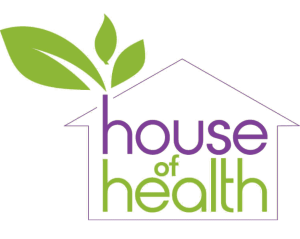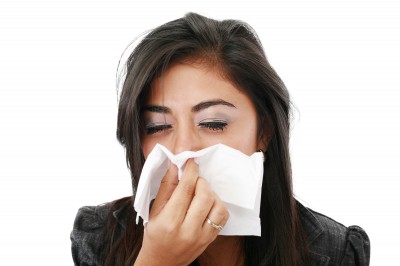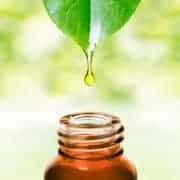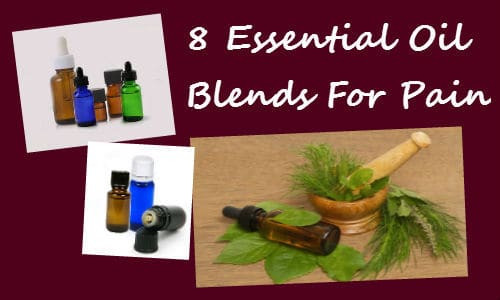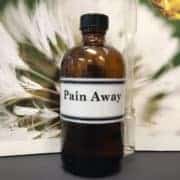5 Natural Remedies for Allergy Relief
Are you tired of fighting allergy symptoms every season or throughout the year? Experts say that this year is poised to be the worst allergy season ever. Climate change has shifted everything into overdrive causing pollen to be released early and stay around longer. The roller coaster of weather has also sent allergies into overdrive.
What are Allergies?
Our immune system is designed to protect us when foreign substances, like bacteria and viruses, enter our body. However, sometimes it gets confused, and has a hard time differentiating an enemy from something harmless, such as foods, pollen, dust, and the list goes on. The result—allergies—pesky occurrences many have come to know all too well with its best pals, Sniffles, Itchy, Headachy, Red Eyes, and Sneezy. Although there are many ways to deal with allergies through conventional medicine, some can be expensive and inconvenient (like allergy shots), or have unpleasant side effects (like drowsiness).
Whether you’re a natural, herbal lover like me or you just want to try a different approach; here are some natural remedies that may help you with your quest for allergy relief.
1) Nettle
Benefits
I definitely can’t move on without mentioning nettle, also known as “stinging nettle.” Studies suggest that it helps to reduces sinus inflammation, and block the body’s ability to release histamine. Nettle is sold as a freeze-dried leaf extract.
Note: Use only as directed on the bottle.
2) Quercetin
Clinical studies suggest that quercetin helps to increase a healthy immune response, block the release of histamine, and fight allergy-related inflammation. It’s a natural bioflavonoid found in foods, such as onions, berries, squash, garlic, apples, citrus fruits, red grapes, greens, broccoli, and teas. Although some foods contain quercetin, it’s usually difficult to intake the amount needed to relieve allergy symptoms. The supplemental form is often paired with bromelain (enhances the effect), and can be used in conjunction with nettle and vitamin C.
Note: Use only as directed on the bottle.
3) Bromelain
Bromelain is a natural anti-inflammatory enzyme derived from pineapple core. It has been known to help reduce nasal swelling and thin mucus, resulting in a happier you that can breathe better. Also, it increases absorption of quercetin, making them a perfect pair. Bromelain is best taken between meals for maximum benefits.
Note: Avoid bromelain or consult with your physician if you are taking blood thinner medication.
4) Butterbur
Butterbur (also known as butterbock and bog rhubarb) works as a natural antihistamine. It contains a natural chemical compound called petasin, which research suggests blocks some reactions that trigger swelling in the nasal passages. This potent plant has produced excellent results in clinical studies. One study published by Swiss researchers in the British Medical Journal showed that taking one tablet, four times daily was as effective as taking a popular antihistamine drug that controls hay fever symptoms, but without the drowsiness that sometimes occurs. Another study by a group of British researchers was presented at the 60th annual meeting of the American Academy of Allergy, Asthma, and Immunology (AAAAI). It showed butterbur’s effectiveness to suppress grass allergy symptoms, such as runny nose, itching, sneezing, watery eyes, and stuffiness.
Note: Butterbur is not recommended for pregnant or breastfeeding women, people with ragweed allergies, or ingestion of the root.
There are other natural remedies that people use for allergy relief including nasal sprays containing xylitol, apple cider vinegar and honey, acupuncture, neti pots nasal wash, spicy foods such as cayenne pepper, homeopathy, and ginkgo biloba. So, to all of my fellow allergy-sufferers, as you can see, there is hope. You definitely have plenty natural choices to help you feel better throughout the allergy season.
Hurry, and come on in to House of Health so our knowledgeable staff can assist you in fighting the allergy battles!
*Disclaimer
These statements have not been evaluated by the Food and Drug Administration. This information and these products are not intended to diagnose, treat, cure or prevent any disease. If you are pregnant, nursing, taking medication, or have a medical condition, consult your physician before using these products.**References
- Image Courtesy of David Castillo Dominici/ FreeDigitalPhotos.net
- Prescription for Nutritional Healing, Fifth Edition by Phyllis A. Balch, CNC; pages 177–181
- WebMD.com/ Vitamins and Supplements Lifestyle Guide
- NeddHealthCenter.com/ May-June 2010 Newsletter
- TheAllergyClinic.com/ July 2012 Newsletter
- Roschek B Jr, Fink RC, McMichael M, Alberte RS. Nettle extract (Urtica dioica) affects key receptors and enzymes associated with allergic rhinitis. Phytother Res. 2009 Jul;23(7):920-6. doi: 10.1002/ptr.2763.
- WholeHealthMD.com/ Nettle; Quercetin; Bromelain; Butterbur
- Hattori M, Mizuguchi H, Baba Y, Ono S, Nakano T, Zhang Q, Sasaki Y, Kobayashi M, Kitamura Y, Takeda N, Fukui H. Quercetin inhibits transcriptional up-regulation of histamine H1 receptor via suppressing protein kinase C-δ/extracellular signal-regulated kinase/poly(ADP-ribose) polymerase-1 signaling pathway in HeLa cells. Int Immunopharmacol. 2013 Feb;15(2):232-9. doi: 10.1016/j.intimp.2012.12.030. Epub 2013 Jan 16.
- Pavan R, Jain S, Shraddha, Kumar A. Properties and therapeutic application of bromelain: a review. Biotechnol Res Int. 2012;2012:976203. doi: 10.1155/2012/976203. Epub 2012 Dec 10.
